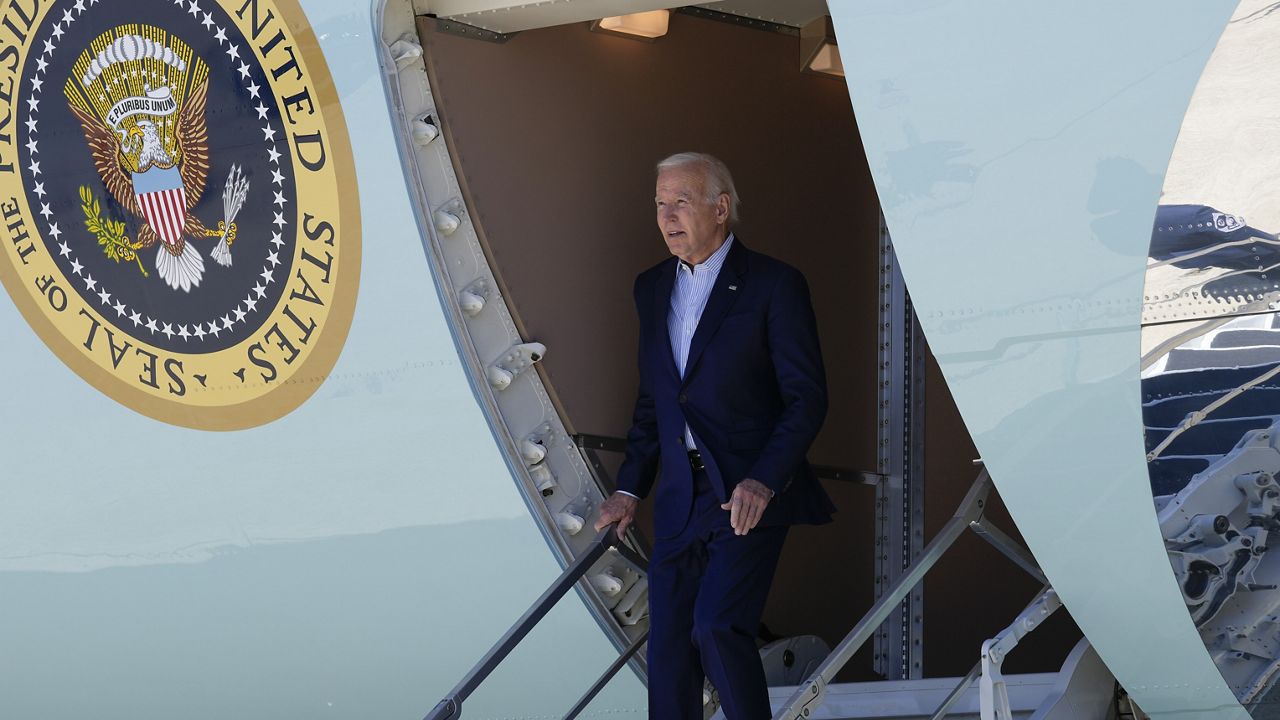President Joe Biden rounded out a ramped-up campaign fundraising spree this week, just ahead of the close of the fundraising books for the quarter on Friday.
The figures for the second quarter of 2023 – expected to be released in July and the first since Biden announced his reelection bid – will provide the first indication of where the incumbent president’s 2024 campaign stands from a financial standpoint.
The Democratic president, who is seeking another four years in the Oval Office, set off to receptions in blue strongholds in northern California, Connecticut, Maryland, Chicago and New York this month – traveling to four states and attending 10 receptions in just the last two weeks. His team has not released any fundraising numbers.
The first 2024 primaries are less than a year away. Biden is facing two Democratic challengers – Robert F. Kennedy Jr. and Marianne Williamson – both of whom Biden leads by a wide margin in the polls.
On the Republican side, the release of quarterly numbers in July may be more telling as candidates are trying to set themselves apart in a crowded field and working to meet the funding threshold of 40,000 unique donors to participate in the party’s August debate.
Nonetheless, longtime Democratic strategist Simon Rosenberg said the incumbent president should not wait to focus on bringing in funds.
“It's very important because the Republicans are louder than we are,” Rosenberg told Spectrum News. “Where we can overcome that is when we raise money and run our campaigns, it’s one of the reasons we did so well in 2022 in the battleground states is that our big, muscular campaigns were able to control the information environment far more than we can on a daily basis.”
Rosenberg pointed to his experience being involved in former President Bill Clinton’s reelection campaign in 1996, saying early fundraising that was used to communicate with voters “shaped and framed the election on our terms.”
“We went out with advertising in the summer, an incumbent president went out with advertising in the summer of 1995, and we really won the election in 1995,” he said. “We shaped the information environment so significantly in 1995, that we ended up winning reelection by seven or eight points.”
He mentioned communication with voters could be particularly important for Biden, whose approval rating ranges around 41%, according to a new poll from The Associated Press-NORC Center for Public Affairs Research, to 43%, per a recent Gallup survey.
The administration this week launched a full-force effort to communicate the impact of Biden’s economic agenda – embracing the term ‘Bidenomics’ and having Biden deliver a major speech on the topic in Chicago. The push comes despite the poll previously mentioned finding just 34% of U.S. adults approve of the president’s handling of the economy.
Dr. David Cohen, a political science professor at the University of Akron, said key indicators – such as GDP, the unemployment rate and even inflation, which has eased for 11-stright months but is still above the Federal Reserve’s target of 2% – show that economy is in good shape. He says the disconnect with the public could come from a lack of linking the economy to Biden’s policies.
“The communication problem has really not gone away from the very beginning, and so I think this is a very smart move, they need to keep leaning into it,” he told Spectrum News regarding the White House’s new ‘Bidenomics’ push.
Rosenberg believes that a campaign to tout the administration's proposals could benefit that messaging.
“That's what advertising is great at, advertising can correct that by helping explain to people, over time, with a substantial amount of money behind it, help people understand basic facts,” Rosenberg said.
On Wednesday, following his remarks on the economy in Chicago – the host city for the 2024 Democratic national convention -- Biden attended a fundraiser with Illinois Gov. J.B. Pritzker, a billionaire who has donated millions to Democratic causes and candidates.
During his 2020 campaign, Biden brought in about $22 million in the second quarter of 2019, which, just as this year, was the first fundraising figures we saw for Biden in that election, as he did not announce his candidacy until April and thus, was not a candidate in the first quarter.
2020 Democratic candidate and Biden’s current Transportation Secretary Pete Buttigieg brought in the most funds on the Democratic side in the second quarter of 2019 with about $29.4 million.
Trump, along with the Republican National Committee, brought in $105 million in the second quarter of 2019 for the then-incumbent president’s reelection.



